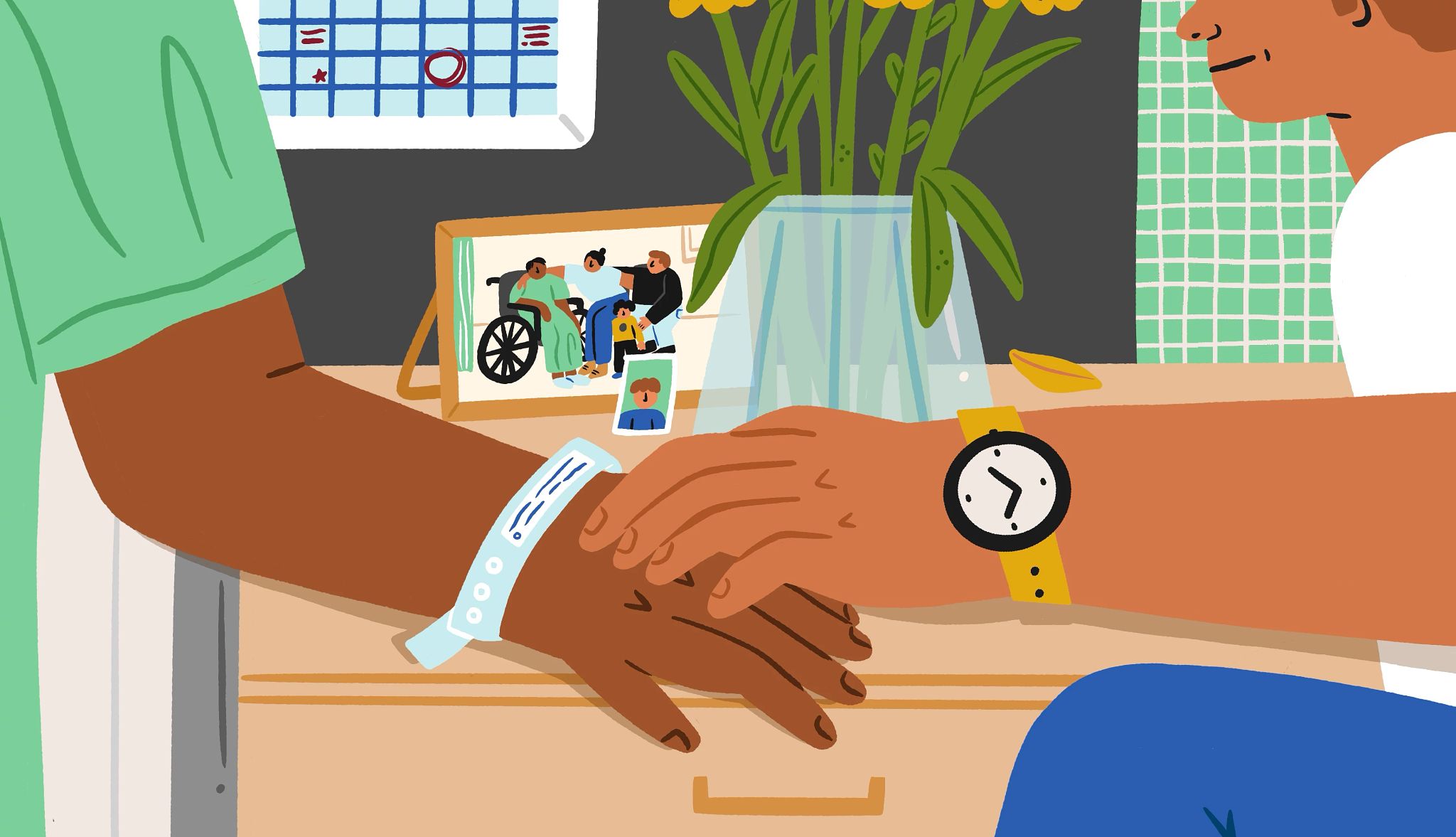
Anticipatory grief: mourning a loss before it happens
- Select a language for the TTS:
- UK English Female
- UK English Male
- US English Female
- US English Male
- Australian Female
- Australian Male
- Language selected: (auto detect) - EN
Play all audios:

There are two kinds of grief. The one that gets the most attention is conventional grief — the shock, anger, disbelief and other feelings which happen after a loss. Anticipatory grief, on
the other hand, is a reaction — often with similar emotions to conventional grief — that happens when an imminent loss is on the horizon. Reasons for anticipatory grief include a terminal
illness, diagnosis of dementia or other progressive disease, scheduled medical procedure, upcoming empty nest, and major transitions such as a divorce or retirement. And it can show up days,
months, sometimes years before the loss actually occurs. Anticipatory grief can be healthy if managed well, allowing you to face fears and finish any unfinished business. But when chronic
or uncontrollable, it can be harmful to day-to-day functioning. Here’s how to successfully prepare for a situation that you may wish would go away but won’t. ACKNOWLEDGE REALITY Too often,
people come from what’s called a “closed family system,” in which they’re raised to think “they shouldn’t openly acknowledge the reality of what is going on and [they] kind of become their
own worst enemy,” says Alan Wolfelt, director of the Center for Loss and Life Transition and author of the guide _Expected Loss: Coping with Anticipatory Grief_. When a death or major loss
is expected within that system, people “act like what is happening is not happening — it’s layered in denial and ways that inhibit the ability for the anticipatory mourning to unfold,” he
explains. “If you don't mourn well, you don't live well, you don't love well.” So openly acknowledge the reality you’re faced with, which takes courage and can be very
difficult to do, says Wolfelt. Otherwise, he adds, you’re faced with “potential fallout consequences physically, emotionally, cognitively, spiritually.” For example, if a loved one is ill,
it helps to acknowledge that reality, in doses, as the illness progresses. “We might say or initially think ‘This person I love is ill,’ then ‘This person I love is very ill,’ then ‘This
person I love has entered a transition from being alive and living to dying,’” he says. “If you don’t acknowledge the reality you are facing,” Wolfelt says, “you often fail to activate your
support system. Then you end up grieving but not mourning.” FEEL A FULL RANGE OF EMOTIONS While conventional grief and anticipatory grief share many of the same emotional responses,
anticipatory grief is “more dynamic,” says Regina Josell, a psychologist at Ohio’s Cleveland Clinic. There can be a lot of ruminative thought, worry, overwhelming sadness, anxiety, even
guilt. With conventional grief, because the loss already has happened, you can start to heal — but that healing process is harder to start while you’re still anticipating a loss that’s to
come, Josell points out. Susan Krobusek, a 69-year-old retired paralegal and volunteer gardener in Canandaigua, New York, remembers juggling myriad emotions after it was clear she was going
to lose her husband, Bruce, to his second bout of cancer.
